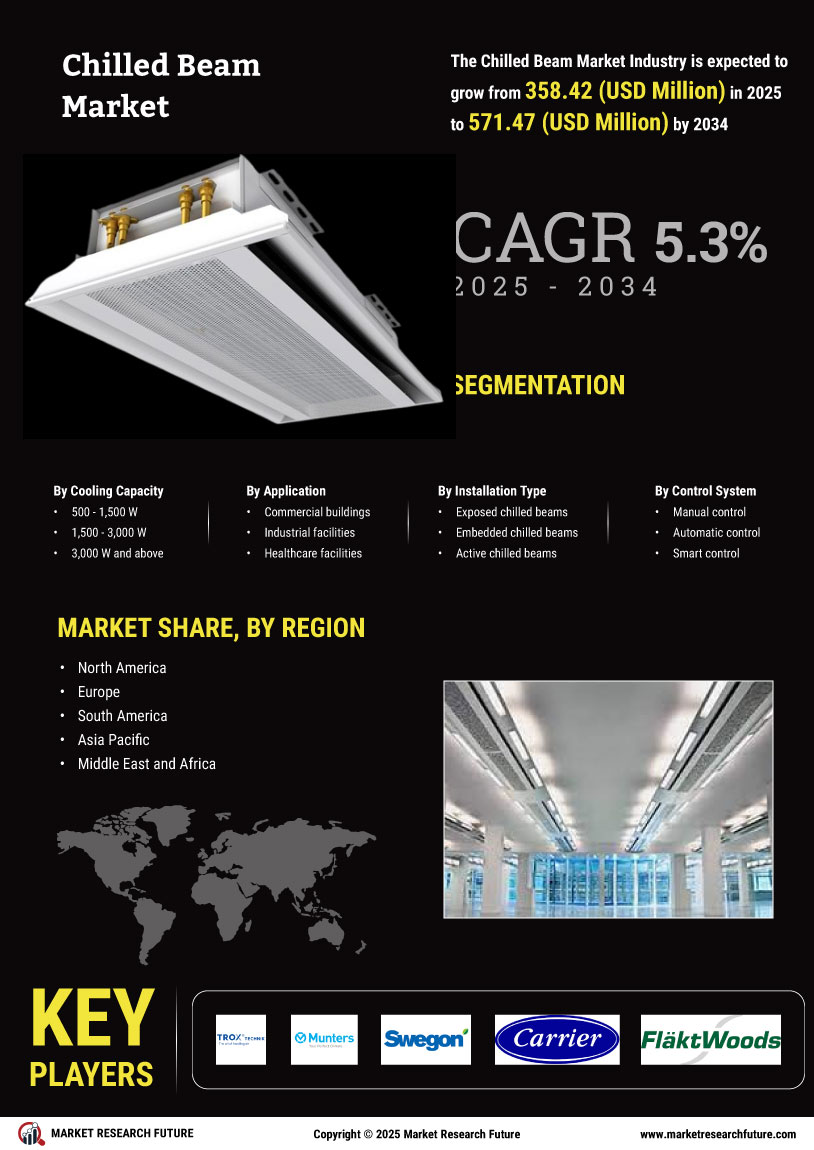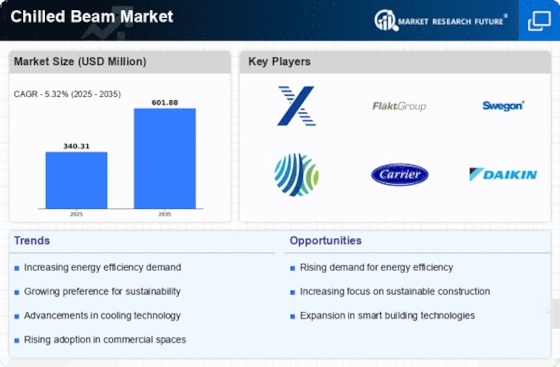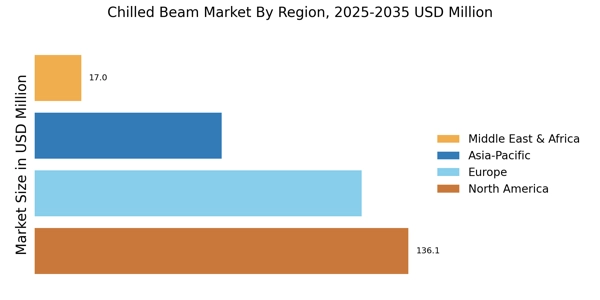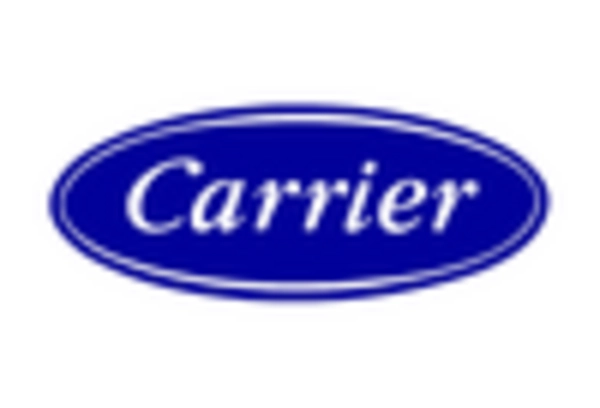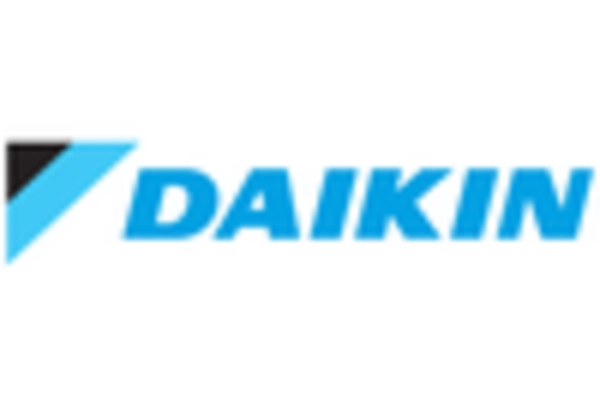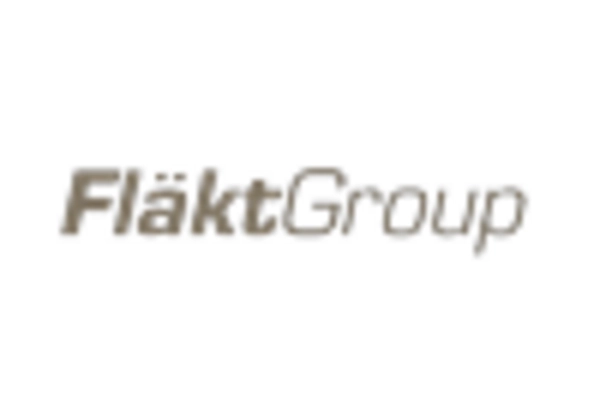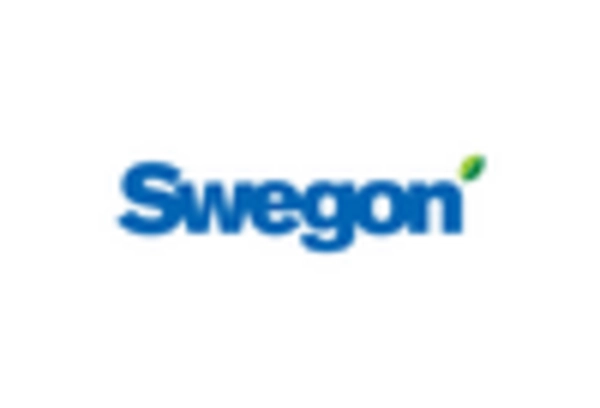Regulatory Compliance
Regulatory compliance is a driving force in the Chilled Beam Market. Governments worldwide are implementing stringent energy efficiency standards and building codes that favor the adoption of advanced cooling technologies. Chilled beams, known for their energy-saving capabilities, are often favored in new construction and retrofitting projects. The market is responding to these regulations, with an increasing number of projects incorporating chilled beam systems to meet compliance requirements. For example, the implementation of the Energy Efficiency Directive in various regions has led to a notable increase in the installation of chilled beam systems. This regulatory landscape not only promotes energy efficiency but also enhances the market's growth potential.
Sustainability Initiatives
The Chilled Beam Market is increasingly influenced by sustainability initiatives. As organizations strive to reduce their carbon footprints, the demand for energy-efficient cooling solutions rises. Chilled beams, which utilize water as a cooling medium, are recognized for their lower energy consumption compared to traditional HVAC systems. This shift towards sustainable practices is evident, as the market is projected to grow at a compound annual growth rate of approximately 12% over the next five years. Companies are investing in chilled beam technology to align with environmental regulations and corporate social responsibility goals, thereby enhancing their market position. Furthermore, the integration of renewable energy sources with chilled beam systems is becoming more prevalent, suggesting a promising future for this segment of the industry.
Technological Advancements
Technological advancements play a pivotal role in shaping the Chilled Beam Market. Innovations in design and materials have led to more efficient and effective chilled beam systems. For instance, the introduction of active chilled beams, which incorporate ventilation capabilities, has expanded the application range of these systems. The market is witnessing a surge in smart building technologies that integrate chilled beam systems with building management systems, enhancing operational efficiency. According to recent data, the adoption of smart technologies in HVAC systems is expected to increase by 20% in the coming years. This trend indicates a shift towards more intelligent and responsive cooling solutions, which could significantly impact the chilled beam market.
Rising Construction Activities
Rising construction activities significantly impact the Chilled Beam Market. As urbanization accelerates, the demand for commercial and residential buildings increases, leading to a higher need for efficient cooling solutions. Chilled beams are becoming a preferred choice in modern architectural designs due to their space-saving attributes and energy efficiency. Recent statistics indicate that the construction sector is expected to grow by 8% annually, further driving the demand for chilled beam systems. This trend is particularly evident in regions experiencing rapid urban development, where builders are seeking innovative solutions to meet the cooling needs of new structures. The synergy between construction growth and chilled beam technology presents a lucrative opportunity for market players.
Increased Awareness of Indoor Air Quality
Increased awareness of indoor air quality is reshaping the Chilled Beam Market. As occupants become more conscious of the health implications associated with poor air quality, the demand for systems that enhance indoor environments rises. Chilled beams, which provide effective temperature control while minimizing dust and allergens, are gaining traction in various sectors, including healthcare and education. Market Research Future indicates that the focus on indoor air quality is expected to drive a 15% increase in the adoption of chilled beam systems over the next few years. This growing emphasis on creating healthier indoor spaces aligns with the broader trends in building design and construction, positioning chilled beams as a viable solution for modern buildings.
